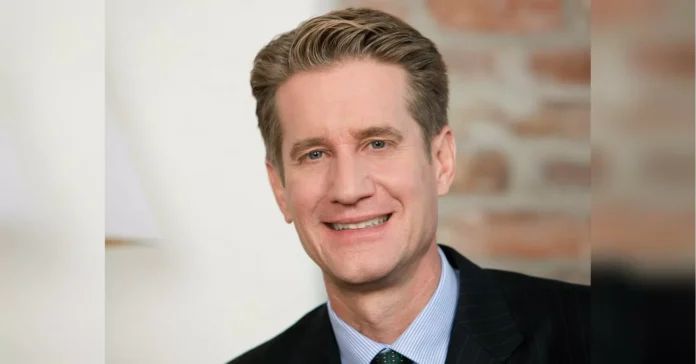For years, the United States has been closely monitoring the role of Russia in the ongoing conflict in Syria. However, the recent actions and statements from President Trump suggest a drastic shift in America’s stance towards the war-torn country. According to Matthew Bryza, former US ambassador to Azerbaijan, Trump is determined to put an end to the war in Syria and is willing to take serious measures to achieve this goal.
It’s no secret that the US and Russia have had a complicated relationship in regards to Syria. The two nations have been backing opposing sides in the conflict, with Russia providing military support to the Syrian government while the US has been supporting rebel groups. This has caused tensions and disagreements between the two superpowers, often leading to a stalemate in finding a solution to the conflict.
However, with the recent chemical attack in Douma, which killed dozens of innocent civilians, President Trump has expressed a strong desire to stop the violence and bring peace to Syria. In a series of tweets, Trump condemned the attack and held Russia and Iran, who are both allies of Syrian President Bashar al-Assad, responsible for the tragedy. This has been a significant change in Trump’s position, as he has previously shown a more lenient attitude towards Assad and Russia’s involvement in Syria.
According to Bryza, who is also a senior fellow at the Atlantic Council, Trump’s main priority now is to stop the war in Syria and not to get involved in a direct conflict with Russia. He believes that Trump is looking for a peaceful solution that will not only end the suffering of the Syrian people but also protect the US interests in the region. This is a challenging task, considering the complexity of the conflict and the involvement of various actors.
In an interview with CNN, Bryza stated that Trump has a strong and clear strategy to bring an end to the war in Syria. He believes that Trump will try to pressure Russia and Iran to withdraw their support for Assad and push for a political solution to the conflict. This could involve tough negotiations and even sanctions against these countries, but Trump seems determined to use all means necessary to achieve his goal.
Some critics argue that Trump’s sudden change in attitude towards Syria is driven by his desire to distract the public from the ongoing investigation into alleged collusion between his campaign team and Russia. However, Bryza believes that Trump’s actions are genuine and that he is sincerely committed to ending the war in Syria. He points out that Trump has previously tried to build a relationship with Russian President Vladimir Putin, but now he is willing to take a tougher stance to achieve his objectives.
It is worth noting that Trump has also taken a different approach to the use of military force in Syria. In April 2017, he ordered a missile strike on a Syrian airbase in response to a chemical attack, but this time, he has shown restraint and has not authorized any military action. This could be a sign that he is willing to pursue a peaceful solution rather than resorting to force.
In conclusion, it is clear that Trump’s administration has shifted its focus from monitoring Russia’s involvement in Syria to finding a solution to the conflict. The recent chemical attack has fueled Trump’s determination to put an end to the war and bring peace to the region. While the road ahead may be challenging, it is reassuring to know that the US is making efforts to bring an end to the suffering of the Syrian people and protect its interests in the region.

